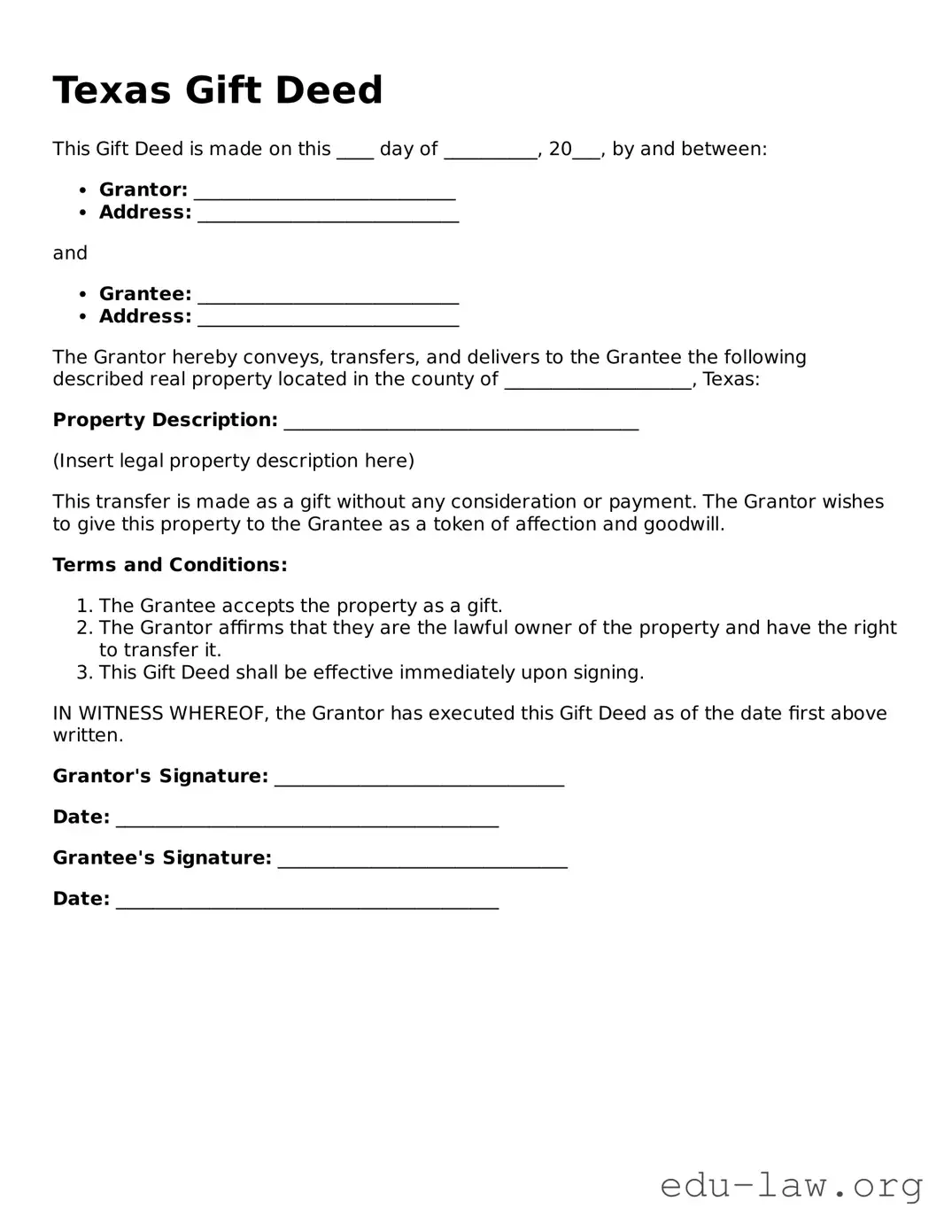Texas Gift Deed
This Gift Deed is made on this ____ day of __________, 20___, by and between:
- Grantor: ____________________________
- Address: ____________________________
and
- Grantee: ____________________________
- Address: ____________________________
The Grantor hereby conveys, transfers, and delivers to the Grantee the following described real property located in the county of ____________________, Texas:
Property Description: ______________________________________
(Insert legal property description here)
This transfer is made as a gift without any consideration or payment. The Grantor wishes to give this property to the Grantee as a token of affection and goodwill.
Terms and Conditions:
- The Grantee accepts the property as a gift.
- The Grantor affirms that they are the lawful owner of the property and have the right to transfer it.
- This Gift Deed shall be effective immediately upon signing.
IN WITNESS WHEREOF, the Grantor has executed this Gift Deed as of the date first above written.
Grantor's Signature: _______________________________
Date: _________________________________________
Grantee's Signature: _______________________________
Date: _________________________________________
